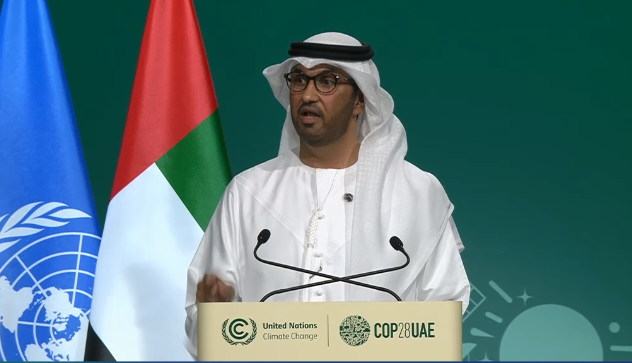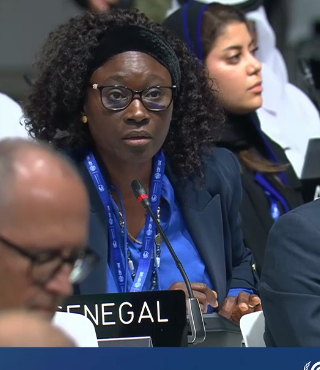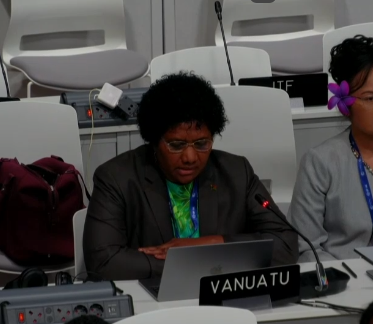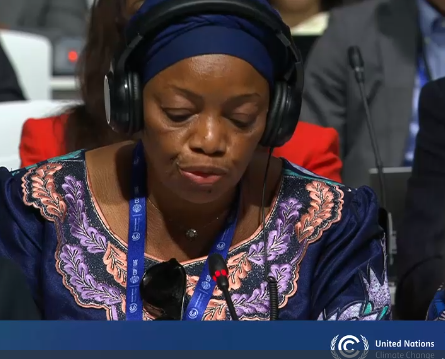At the opening ceremony of the UN Climate Talks, part of the delegates of the United Nations Framework Convention on Climate Change presented their first commitments.” This is a positive signal of momentum to the world and to our work in Dubaï”, underlines the president of COP 28, Sultan Al Jaber.
“423.1 million dollars pledges”
United Arab Emirates pledge 100 million US dollars for the fund. The United States of America, 17,5 million US dollars, Germany 100 million US dollars, the rest of European Union, around 145,6 million US dollars and Japan, 10 million US dollars. This brings the aggregate for the fund to 423.1 million US dollars. And funding arrangements to 32 million dollars so far, with more to come in the head of states summit, are clearly indicating negotiators from the Global South .

“This Fund will support billions of people, lives and livelihoods that are particularly vulnerable to the effects of climate change, I want to thank my team for all their hard work to make this possible on day one of COP28. It proves, the world can unite, can act, and can deliver.”, explains Al Jaber.
Last year, the United Nations Climate Change Conference (COP27) issued a landmark decision on a long and hard battle waged by vulnerable developing countries demanding funding for this fund.The decision has integrated the need to establish new funding arrangement. It has included a designated fund and broader funding arrangements to mobilize additional funds to address loss and damage.
The demands
“This fund should not duplicate the usual funding models, but rather ensure new funding that is accessible, additional, adequate and substantial in the form of grants to enable us to recover, to rebuild and rehabilitate our countries following extreme events and events with slow evolutions,” requests Madeleine Sarr, president of the group of least developed countries, a group of 46 countries.

The funding should come from bilateral and multilateral institutions. The decision last year has established a transition committee. His role was to operationalize the loss and damage fund and gives recommendations to COP 28 presidency. For Richard Sherman, from South Africa, co-facilitator of the Transition Committee, the negotiations these past few months were challenging , but their recommendations were finally approved, despite civil society discontent.
“On one hand, rich countries have pushed for the World Bank to host this Fund under the guise of ensuring a speedy response. Conversely, they have attempted to dilute their financial obligations and resisted defining a clear finance mobilisation scale. The absence of a defined replenishment cycle raises serious questions about the Fund’s long-term sustainability,” says Harjeet Singh, head of global political strategy at CAN international, a global non gouvernemental organization. On Your Voice on radio Era Environnement, Fadhel Kaboub, Power Shift africa expert raises also concerns.
A recognition for developing countries
Oxfam welcomes completion of Loss and Damage Fund and now expects financial contributions. After last year’s approval of the principle of a hard-fought Fund for Loss and Damage, the States agreed at the beginning of this COP 28 on Thursday 30 November on the concrete modalities of this fund, which will be hosted on a transitional basis by the World Bank and should be eligible to all developing countries, raises this non governmental organization. The bank will host the fund for an interim period of 4 years.
“I would like to congratulate the presidency on the decision in a court deadline for the creation of the climate change response fund. However, we want to argue that this fund will allow countries that are victims of the adverse effects of climate warming to be truly beneficiaries and that there will be relaxation of mechanisms for accessing these funds and also transparent management of these funds,” demands the minister of environment of the Republic Democratic of Congo, Eve Bazaiba.
For Nate Warszasw, Research Associate, World Research Institute (WRI), a global research nonprofit, the loss and damage fund is a recognition for especially the small islands developing state and the least developed countries to have the ability to have access to the fund. ” With this fund, there will be a proper distribution. In 2021, the small islands states reached 2% of climate finance,” he points out.
The delegate of Vanatu, with a shy voice expresses her joy full of emotions. “My sincere gratitude to the development countries which pledge to this very important mechanism, which my country among others demand for about thirthy years”, she tells in the plenary, and underlines that her country is one of the most vulnerable country in the world usually affected by cyclones.
For Warszasw, Vanuatu is the only country which has cost loss and damage in their NDCs and details specifically what they expect in their National Determined Contributions (NDCs). These elements will therefore be important in the assessment of the Global Stocktake during these two weeks. For David Waskow, Director WRI, the global stocktake takes stock of the evolution of states to achieve the objective requested by science, but also provides solutions on projections and this is integrated into the national determined contributions.

But who must contribute to the fund?
The response is unclear. “This question will be analysed in the next few months and next year negotiations will be around new climate finance targets, ” he replies to Era Environnement.
In plenary, however, the question of rapid financing was raised. “We hope that the commitments made under your leadership will continue tomorrow and throughout this period of the COP to have an adequate capitalization of the loss and damage fund so that this year we see this fund effectively meet the needs of communities impacted,” recommends the LDCs group during the plenary. But for the director of WRI, there has been great progress. The United Arab Emirates’ commitment to contribute to the loss and damage fund has been a breakthrough in many respects,’ Waskow emphasises.”The fact that UAE pledge to contribute to the loss and damage fund was a breakthrough on a lot of ways,”Waskow emphasizes.
For the representative of the Republic of the Congo, minister of environment , Eve Bazaiba, these pledges should not overshadow the commitment made by the countries responsible for pollution to contribute to the fight against climate change by 100 billion US per year, a commitment made since 14 years, she reminds. The Minister of the Environment also refers to the common and differentiated responsibility outlined in the Paris Agreement. “We know that responsibility is collective and differentiated according to whether we pollute or not.”

“We don’t want to be at the mercy of voluntary carbon”
The minister of environment of Congo highlights the role of her country and the three basins, Amazon, Congo and Borneo-Mekong-Southeast Asia regions, in protecting the planet. “On behalf of the three basins, we also want to announce our intention to contribute to this fund, we are victims, but we have the answer, but this answer is conditioned, we ask that it be recorded today in this extraordinary day of COP 28, that forests are the answer and that we forest countries call for the upward revision of the price of a tonne of carbon to allow us to tap into this fund to collect carbon from the market that we can help mobilize the resources of the fund to fight against Climate Change and this will allow us to finance our own adaptation and mitigation projects and boost solidarity with islands and desert countries,” she explains. And she concludes: “We don’t want to be at the mercy of voluntary carbon. We want to integrate government sovereign markets”, she calls.





